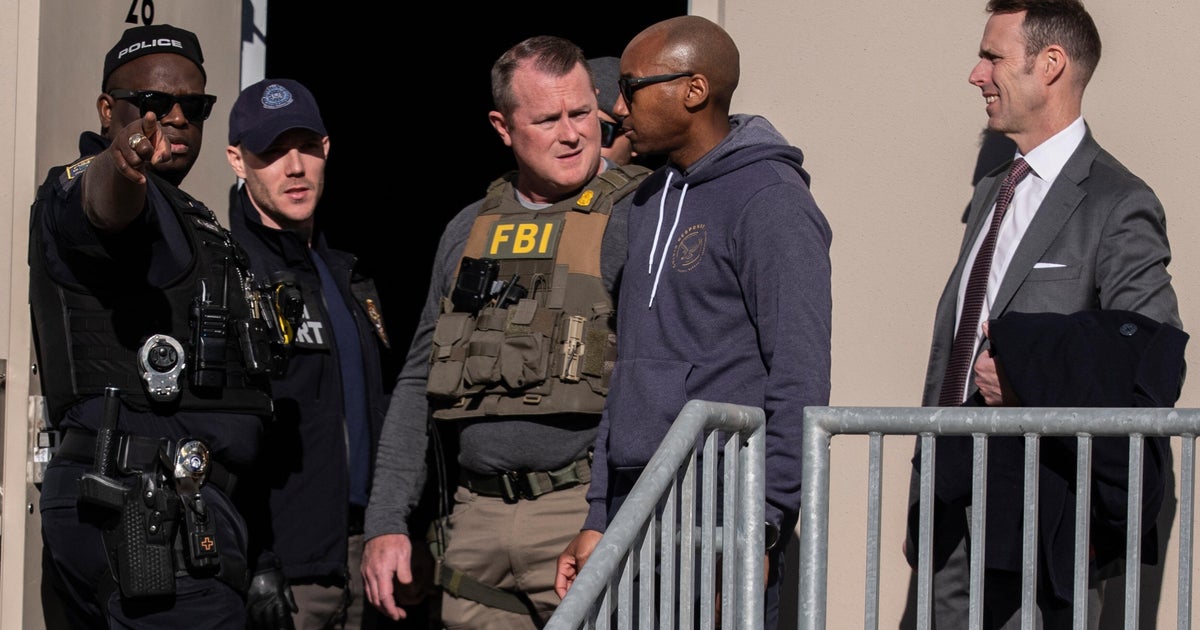Problems in FBI surveillance applications went beyond Carter Page, Justice Department watchdog finds
Washington — The Justice Department's internal watchdog found widespread problems with surveillance applications submitted by the FBI to the government's national security court, indicating issues with the bureau's FISA warrants extended beyond those targeting former Trump campaign aide Carter Page.
The deficiencies, drawn from surveillance applications between October 2014 and September 2019, a period which included the tenure of both former FBI Director James Comey and current FBI Director Christopher Wray, were detailed in a new audit conducted by Michael Horowitz, the Justice Department inspector general, and made public Tuesday.
The audit focused on the so-called Woods Procedures, which were instituted by the FBI in 2001 after several problems were identified with the stated purpose of minimizing errors by maintaining a file of the underlying evidence. FBI case agents requesting FISA applications are required to maintain a Woods File.
"We do not have confidence that the FBI has executed its Woods Procedures in compliance with FBI policy, or that the process is working as it was intended to help achieve the 'scrupulously accurate' standard for FISA applications," Horowitz wrote in a memo to FBI Director Christopher Wray.
The audit of the FBI's surveillance process was initiated in the wake of Horowitz's investigation into the bureau's Russia probe known as "Crossfire Hurricane" and its handling of four applications targeting Page submitted under the Foreign Intelligence Surveillance Act (FISA).
In that investigation, the results of which were released in December, the inspector general found the initial surveillance application submitted to the FISA court and three renewal applications contained 17 "inaccuracies and omissions."
The new audit, which assessed the FBI's underlying records to support surveillance applications relating to U.S. persons, said of the Page warrants, "we identified fundamental and serious errors in the agents' conduct of the FBI's factual accuracy review procedures ('Woods Procedures') with regard to all four FISA applications."
Horowitz underscored the finding that errors, which appeared in the first application, were repeated in the subsequent renewals, writing, "We further found that the FBI had failed to follow its policies for re-verifying factual assertions made in the initial FISA application that were also included in the three FISA renewal applications."
In the new audit, which is part of an ongoing review, Horowitz and his team assessed a sample of 29 surveillance applications relating to U.S. persons as part of counterintelligence or counterterrorism investigations. In all 29 of the applications, the inspector general found issues with the underlying records, or "Woods Files," which are intended to curtail factual inaccuracies in surveillance applications and ensure details in the applications are "scrupulously accurate."
In four of the 29 applications, the inspector general could not review the Woods Files because the bureau couldn't locate them at all and in three of those instances, the FBI didn't know if they existed. For the remaining surveillance applications, Horowitz found all 25 contained "apparent errors or inadequately supported facts."
Horowitz said the audit was narrow in scope, and he and his team did not make "materiality judgments" for the errors identified and did not speculate as to whether the problems would have influenced the decision to file the surveillance application with the FISA court or the court's approval of the application.
The Justice Department's watchdog identified an average of 20 issues per application, with one containing as many as 65 problems and another containing fewer than five.
The inspector general made two recommendations to the FBI to address the issues uncovered: that it institute a requirement to regularly examine past and future accuracy reviews conducted by the Justice Department and perform an inventory to ensure supporting documentation exists for every wiretap application submitted in all pending investigations.
In response to Horowitz's findings, Paul Abbate, the FBI's associate deputy director, said it "has been intensely focused on" implementing remedial measures to ensure its FISA authorities "are exercised with objectivity and integrity."
"As Director Wray has stressed, FISA is an indispensable tool to guard against national security threats, but we must ensure that these authorities are carefully exercised and that FISA applications are scrupulously accurate," Abbate wrote in a letter to Horowitz.
In response to the audit, the Justice Department said in its own letter to Horowitz that it is committed "to taking whatever steps are necessary to ensure the integrity of the FISA process, including strengthening existing policies, procedures and training to facilitate accuracy in FISA applications."
"No one was more appalled than the attorney general at the way the FISA process was abused," Justice Department spokeswoman Kerri Kupec said in a statement. "This abuse resulted in one of the greatest political travesties in American history and should never happen again. However, FISA remains a critical tool to ensuring the safety and security of the American people, particularly when it comes to fighting terrorism."
Kupec said the Justice Department has made "strong reforms" to the surveillance process, reflected in recently passed legislation, "that it believes will address the misconduct of the past."
The ongoing criminal investigation into the origins of the Russia probe, which encompasses the FISA surveillance applications, is under the direction of U.S. Attorney John Durham. CBS News recently reported that based on a "strong paper trail" of documents, Durham is focused on the period between January and May 2017, including a media leak.



